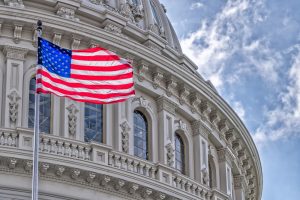
The full U.S. Senate and a House committee on March 11 approved bipartisan legislation addressing the nationwide crisis of missing and murdered indigenous women, actions praised by U.S. Rep. Dan Newhouse (R-WA) and U.S. Sen. John Hoeven (R-ND).
“This action is long overdue, but it is a welcomed step forward,” said Rep. Newhouse. “I applaud the House Judiciary Committee for finally taking action on this bipartisan effort.”
The U.S. House Judiciary Committee on Wednesday marked up and gave voice vote approval to H.R. 2733, which Rep. Newhouse introduced in May 2019 with bill sponsor U.S. Rep. Norma Torres (D-CA) to direct the U.S. Department of Justice (DOJ) to review, revise and develop law enforcement and justice protocols to address missing and murdered Native Americans, according to the congressional record bill summary.
Also on Wednesday, the U.S. Senate unanimously approved its version, S. 227, introduced in January 2019 by original cosponsor Sen. Hoeven and bill sponsor U.S. Sen. Lisa Murkowski (R-AK) and 28 other cosponsors from both sides of the aisle.
“We welcome Senate passage of Savanna’s Act and will continue our efforts to advance the measure into law,” said Sen. Hoeven, chairman of the U.S. Senate Indian Affairs Committee.
The measure, which is named in honor of Savanna LaFontaine-Greywind from North Dakota, who was murdered in 2017, “is about empowering law enforcement to better respond to cases of missing and murdered Native Americans to prevent similar tragedies and bring offenders to justice,” Sen. Hoeven said.
“This is part of our broader efforts to improve public safety and victim services for tribal members, both on and off the reservation,” added the senator.
It’s an issue that Rep. Newhouse said has impacted Native Americans for decades. “I will continue to work on behalf of the loved ones affected by this crisis to bring this important legislation to the House floor for a vote,” the congressman said.
The Senate-approved bill now heads for consideration to the U.S. House of Representatives, which also will receive its version of the measure for action.



